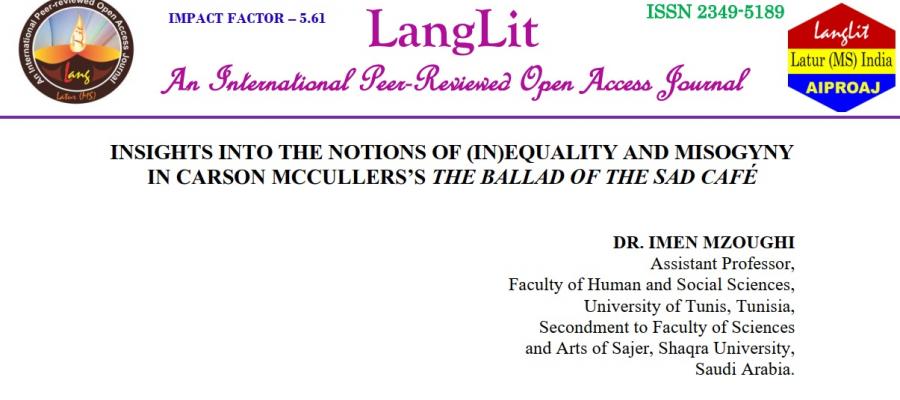ABSTRACT
This paper foregrounds Carson McCullers’s holistic perception of women and hunchbacks in her novel entitled The Ballad of the Sad Café. Her endeavor to correct the misrepresentations of women and physically crippled human beings is praiseworthy. She provides a detailed account of the holistic paradigm used within the scope of this novel to dismantle inequalities through dialogues of conscience between different human beings. She strives to show that (in)equality is prevalent in the world. That is why, this article considers the liberating power of love. The protagonist of the novel named Miss Amelia has known a metamorphosis after falling in love with Cousin Lymon, a hunchback. As a physiatrist, Miss Amelia has identified herself with the hunchback in a holistic manner. She has come to terms with the emotional impact of his spinal deformity. In fact, spinal deformity has traditionally had tragic negative connotations since Shakespeare’s play Richard III. The narrator sees danger in the triangle: Amelia, the hunchback and Marvin Macy (Miss Amelia’s former husband). Yet, the most striking characteristic of the narrator is his/her compassion for the three major characters whose features are symbols of humans’ moral isolation and pain. The narrator refers to these characters as wholes. This is due in part to the oral quality of the tale and the personal balladeer’s response to the events. Transformation, and, henceforth, wholeness begins when Miss Amelia perceives the hunchback as an ordinary human being. An assessment of McCullers’s novel is meant to appraise equality ethics, which is connecting individuals with their original societies and lands. McCullers’s credo echoes that of Aristotle in his book Metaphysics: “The whole is more than the sum of its parts” (1045).

